Dark Souls II Original Soundtrack
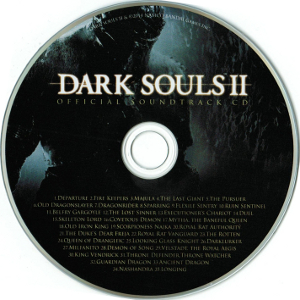 |
Album Title: Dark Souls II Original Soundtrack |
| Record Label: Namco Bandai Games (US / EU Edition); FromSoftware (JP Edition) |
|
| Catalog No.: N/A |
|
| Release Date: March 11, 2014 (US Edition); March 13, 2014 (JP Edition); March 14, 2014 (EU Edition) |
|
| Purchase: Buy Used Copy |
Overview
Impressions of Dark Souls II have been mostly positive, despite the initial worry about a new set of directors steering the helm. Early trailers used licensed music and thus gave no hint of who the composer was. Yet closer to the release of the online beta, it emerged that Motoi Sakuraba had indeed returned to score this sequel. Sakuraba stayed close to the structure of the predecessor’s score, focusing principally on the waypoint areas and boss themes. The online betas showcased two boss fights thus two samples of the game’s music, but unfortunately featured synthetic music like the Artorias expansion. My immediate concern was the quality of the endproduct; was there still time to match or surpass the quality of Demon’s Souls and Dark Souls? Once again, the soundtrack CD was enclosed in the collector’s editions in Japan, North America, and Europe.
Body
Sadly, the quality of the Dark Souls II certainly doesn’t match its predecessors. The impression given by this CD is that the sound direction didn’t get much of a budget. It is a dull, lifeless score. No effort was made to flesh this music out beyond the demos with instrument or choral performances. While the last score effectively captured a theme of hopelessness and fleshed it out with a solid performances, this score is just a hopeless MIDI tape. The brass synth and choral work is especially awful. The soundtrack for Demon’s Souls was scary, though had plenty of character. The first Dark Souls at least attempted to polish Sakuraba’s music into something more refined.
Sakuraba clearly intended “Departure” to be an epic introduction to the soundtrack with his bombastic orchestration and epic build-ups. However, the endproduct is nothing other than a mess; the whole piece sounds rushed and unbalanced, filled with jarring brass samples, a vowel-ridden synth choir, and even clichéd string work. This isn’t what listeners would expect from a game made in 2014, never mind a sequel to one of the best games of the generation. “The Firekeepers” serves as the game’s character creation music, while “Majula” is the theme for the main hub area. Both take a minimalistic, atmospheric approach, focusing on harp soli and, in the latter, celesta and occasional synth strings. The sombre piano solo “Queen of Drangleic” is also sadly forgettable.
The boss themes serve a purely atmospheric purpose this time round. “Last Giant” is the first boss theme and again it is saturated with jarring brass and soulless choir. “The Pursuer” is mostly ambient, building a tense atmosphere with chants and percussions; while just about effective in creating a horror feel, it doesn’t progress to anything interesting. Containing elements of Majuka’s theme, “King Vendrick” again is an ambient theme; it seems to be building up to an emotional climax that never really attains anything. I enjoyed the percussive elements and progressions of “Royal Rat Authority”, but again, it seemed to fade out prematurely. “Belfry Gargoyle” makes a return from the previous score, though Sakuraba has added to it and ruined it. There is a track titled “Ancient Dragon”, though it doesn’t compare to the eerie track of the same name from Dark Souls.
The soundtrack CD is insulting that it is not even complete. As everything is crammed on one disc, some of the better tracks are cut short. The way it has been handed in the enclosure is a poor effort to boost the value of a collector’s edition. For example, while I did enjoy “Old Dragonslayer”, the soundtrack version fades out just under two minutes whereas the original track spans for four minutes. The final boss track is cut short at its beginning and is supposed to clock in eight minutes; during its official three minutes, “Nashandra” has some rarely agreeable elements to it, switching between slow melancholic moments and rushed string segments, but I felt cheated that I didn’t receive more. The treatment is even worse than the European edition of the Dark Souls soundtrack, which was reshuffled, but at least packaged with full-length tracks.
There is one redeeming factor for this score: Sakuraba once again collaborates with Nier vocalist Emi Evans. “Milfanito” is brief little vocal theme that plays during a story interlude. It breaks the synthetic nature of the soundtrack, nodding to the previous game’s Nameless Song. “Longing” is a fully-fledged vocal theme similar in style to “Nameless Song”, with beautiful orchestration and excellent vocal performances from Evans. The CD is worth having just for this song alone; it’s just a shame about the lengthy filler that precedes it.
Summary
After Dark Souls II’s release, I sadly learned that Yuji Takenouchi resigned from From Software. While he directed the excellent audio for Dark Souls, he had a very small role on Dark Souls II and was seemingly replaced by Koichi Suenaga. It shows. Reviews also speak of delayed sound effects within the game, so questionably, it not just the issue of an overly busy composer, but how a new sound team didn’t seem capable of providing a thorough dose of decent sound direction. The music generally suits the game, as atmospheric underscore. However, despite usually enjoying Sakuraba’s work, I doubt it will have much of a lasting impression beyond the game given the generic stylings and dull sound quality. There are some barely satisfactory themes here and there. But the lack of decent sound production sticks out like a sore thumb, and ultimately makes for an disaster of a score. It’s not helped by the atrocious presentation of the music in the Collector’s Edition album, with crammed and shortened tracks.
Do you agree with the review and score? Let us know in the comments below!
1.5
Posted on June 4, 2014 by Christopher Jones. Last modified on June 4, 2014.

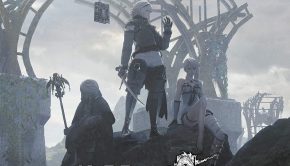
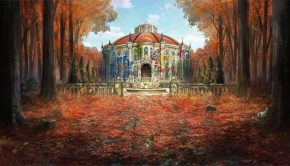
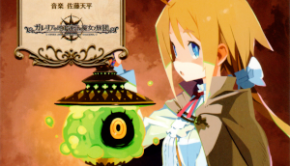
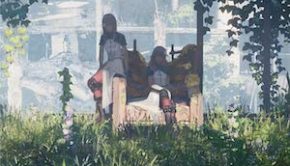










This soundtrack didn’t impress me either, and I don’t understand why From hired Sakuraba of all people for orchestral music. The man’s been worked to death after making a hundred soundtracks a year for the past decade, and his strongpoint has always been his fusion-derived stylings. His forays into “more respectable genres” invariably end up being tolerable at best.
Another negative is poor ensemble differentiation. This sounds like a soundtrack riffing on Nito’s theme from Dark Souls. As you wrote, “jarring brass samples, a vowel-ridden synth choir, and even clichéd string work,” and with such density and urgency in each track that it’s as if Sakuraba believed he were writing music for an apocalyptic scenario every time (Demon’s Souls’ composer had, for example, the clarity to write a somewhat humorous theme for the Adjudicator monster, whereas in Dark Souls 2 the silly covetous demon gets a dead-serious, hell-raising theme). At least Dark Souls’ boss themes, dull as they were, had elements to set them apart sonically.
Very curious how sound and music will be handled with this upcoming “Project Beast” title.